Things you should know about Hamas attack against Israel
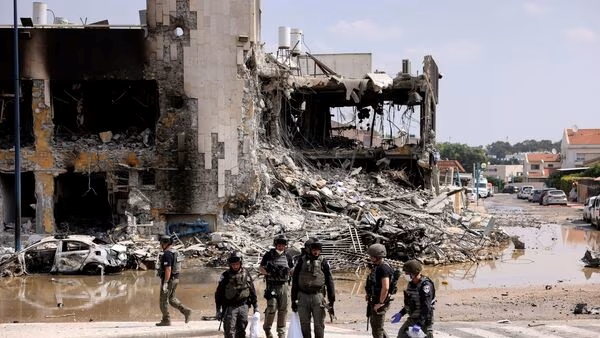
In a dramatic turn of events, a recent Hamas attack against Israel unfolded in the early hours of a Saturday morning, catching many Israelis by surprise as they slept. Sirens echoed across the region, reaching as far as Tel Aviv, while rockets streaked through the skies.
What made this assault particularly remarkable was the multi-pronged approach taken by Gaza militants, who infiltrated Israel through land, sea, and air, even employing paragliders, as reported by the Israel Defense Forces (IDF). While the IDF estimated approximately 2,200 rockets were fired at Israel, Hamas claimed a staggering 5,000. To put this into perspective, it surpasses the 4,000 rockets fired during the 50-day conflict between these two sides in 2014.
Dubbed “Al-Aqsa Storm” by Hamas military commander Muhammad Al-Deif, this operation was framed as a response to various provocations, including attacks on women, the desecration of the al-Aqsa mosque in Jerusalem, and the prolonged siege of Gaza. Heightening the tension, Hamas released videos purportedly showing captured Israeli soldiers. Tragically, the IDF subsequently published the names of 44 soldiers who lost their lives in the attack.
As the conflict continued, Hamas declared that its fighters still maintained a presence in several southern Israeli cities. They backed this claim with relentless rocket fire, targeting locations such as Ofakim, Sderot, Yad Mordechai, Kfar Aza, Be’eri, Yated, and Kissufim. This rapidly evolving situation underscores the complexity and gravity of the ongoing Hamas attack against Israel.
How has Israel responded?
In response to the Hamas attack against Israel, the Israeli government launched “Operation Swords of Iron,” which aimed at targeting various locations in the Gaza Strip. Israeli Prime Minister Benjamin Netanyahu made it clear that Israel’s response to the Hamas incursion would come at a significant cost to the group. The Israel Defense Forces (IDF) also issued urgent warnings to civilians in Gaza, urging them to evacuate their residential areas immediately to ensure their safety while Israeli military operations continued to target Hamas.
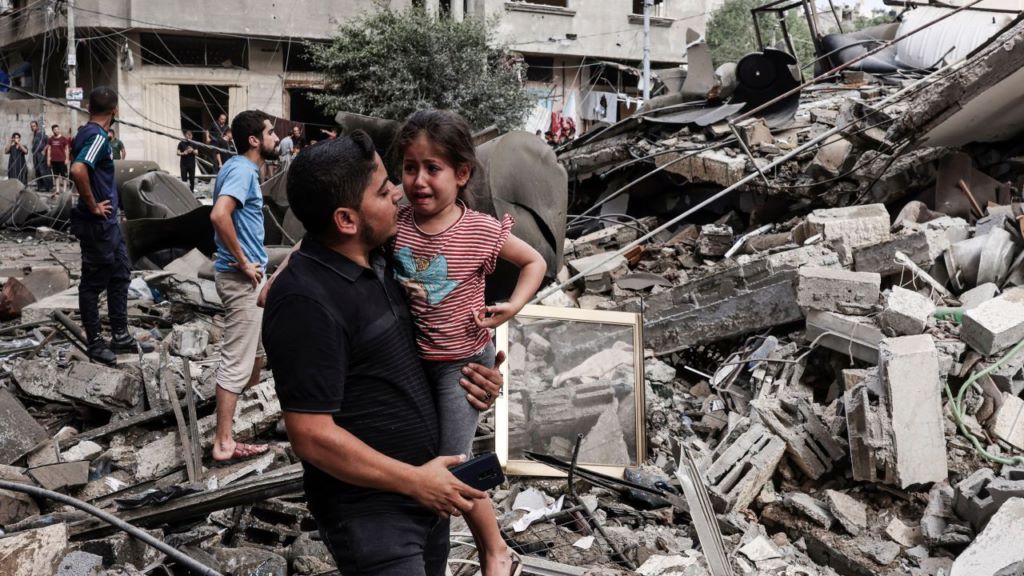
Inside Gaza, the sounds of Israeli warplanes filled the skies, often followed by deafening explosions and columns of black smoke rising into the air. Tragically, the Palestinian Ministry of Health in Gaza reported that over the course of 24 hours, at least 313 people lost their lives, including at least 20 children, with an additional 1,990 individuals sustaining injuries.
On the same day, the IDF disclosed that it had struck 426 targets in Gaza, among them ten buildings it alleged were being used by Hamas. In a separate development, in the northern region, Lebanon’s Iran-backed Hezbollah group claimed responsibility for launching attacks on three Israeli locations in an area known as Shebaa Farms, using missiles and artillery. This area is viewed by Lebanon as Israeli-occupied territory, and Israel responded by firing artillery in retaliation.
Meanwhile, in the Israeli-occupied West Bank, tensions escalated as seven Palestinians lost their lives in clashes with Israeli soldiers. These clashes erupted after the Israeli army imposed restrictions on West Bank cities, according to information from the Palestinian Ministry of Health. The situation on multiple fronts underscores the gravity of the aftermath of the Hamas attack against Israel.
How did the two sides get here?
Tensions between Israel and the Palestinians have persisted since well before the establishment of Israel in 1948. This enduring conflict has resulted in the loss of thousands of lives on both sides, with many more individuals suffering injuries throughout the decades-long struggle. The violence has reached particularly alarming levels in recent times. In the occupied West Bank, the number of Palestinians, including both militants and civilians, killed by Israeli forces has reached its highest point in nearly twenty years. Similarly, there has been a surge in the number of Israelis and foreigners, primarily civilians, falling victim to Palestinian attacks.
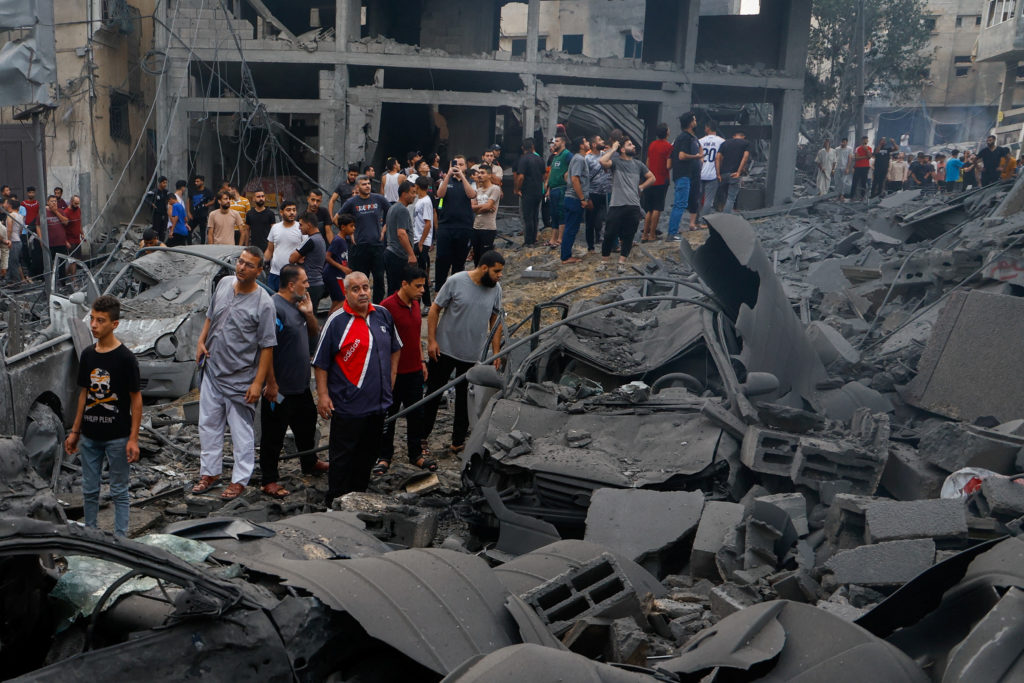
The longstanding hostilities between Israel and Hamas date back to events as early as the 1987 First Palestinian Intifada, a widespread uprising against Israel’s occupation of the Gaza Strip and the West Bank. Israel initially gained control of Gaza during the 1967 war but later withdrew its forces in 2005. In 2007, following a brief civil war with Fatah, a rival Palestinian faction forming the core of the Palestinian Authority, Hamas assumed control of Gaza.
Subsequently, Gaza found itself subjected to a stringent siege enforced by both Israel and Egypt, a situation that continues to this day. Additionally, Israel maintains an air and naval blockade around Gaza. Before the recent operation on Saturday, the last major conflict between Hamas and Israel occurred in 2021, lasting for 11 days and resulting in the deaths of at least 250 people in Gaza and 13 in Israel. This latest assault took place on the 50th anniversary of the 1973 war, during which Israel’s Arab neighbours launched a surprise attack on the nation on Yom Kippur, the holiest day in the Jewish calendar, on October 6, 1973.
What is Hamas?
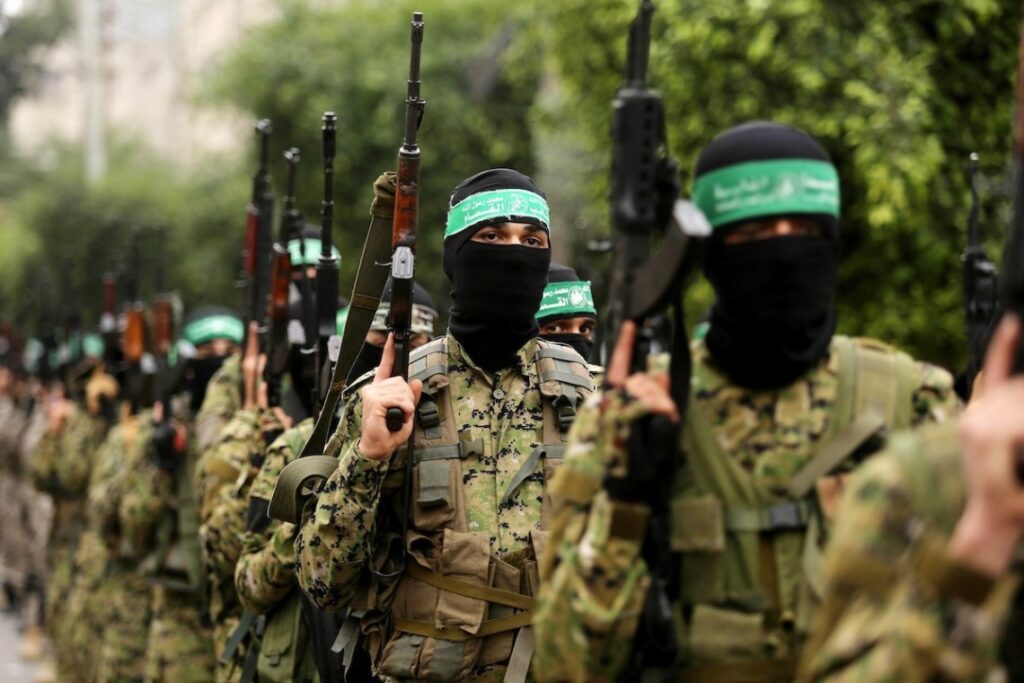
Hamas, established in 1987, is an Islamist organization with its roots tracing back to the Muslim Brotherhood, a Sunni Islamist group founded in Egypt in the late 1920s. The name “Hamas” is an acronym for “Harakat Al-Muqawama Al-Islamia,” which translates to the Islamic Resistance Movement in Arabic. Like several other Palestinian factions and political parties, Hamas firmly asserts that Israel is an occupying force in Palestinian territories and deems Israel an illegitimate state.
One key factor contributing to its rejection of peace talks in the past is its steadfast refusal to recognize Israel. In 1993, for instance, Hamas opposed the Oslo Accords, a peace agreement between Israel and the Palestine Liberation Organization (PLO). The group positions itself as an alternative to the Palestinian Authority (PA), which has recognized Israel and has participated in numerous unsuccessful peace initiatives with it. Presently, the PA is under the leadership of Mahmoud Abbas and is based in the Israeli-occupied West Bank.
Hamas has a history of claiming responsibility for various attacks on Israel and has been designated as a terrorist organization by several entities, including the United States, the European Union, and Israel itself. Israel has consistently accused its adversary, Iran, of providing support to Hamas.
What is al-Aqsa?
The Al-Aqsa compound holds immense significance in both Islam and Judaism, making it one of the most revered places for both faiths. Muslims refer to it as Al Haram Al Sharif, or the Noble Sanctuary, while Jews know it as the Temple Mount. However, it has long been a source of tension between Israel and the Palestinians, sparking conflicts over many decades. Hamas cited the defence of this holy site as one of its reasons for launching the “Al-Aqsa Storm” attack on Saturday.
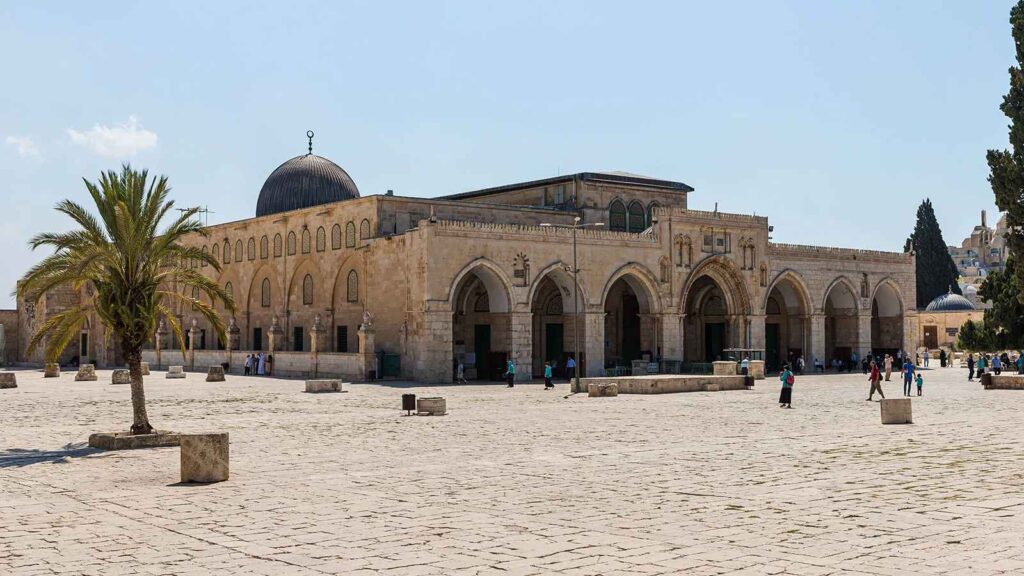
As part of a status quo arrangement reached over a century ago, only Muslims are permitted to engage in prayer within the compound. Non-Muslim visitors are allowed to visit the complex during specified times and are restricted to certain areas. Nevertheless, concerns have arisen in the Muslim world, suggesting that the exclusive worship rights at the site are gradually eroding. There are growing apprehensions about the influence of a far-right Jewish movement and Israel’s right-wing government, which some believe pose threats to these sacred sites.
The Al-Aqsa compound has been a frequent flashpoint for clashes between Palestinian worshipers and Israeli security forces, with the police conducting several raids on the site over the past year. Situated in East Jerusalem, the Palestinians regard this area as the future capital of their state, a stance supported by most of the international community, which views it as occupied territory. However, Israel, having captured East Jerusalem from Jordan in the 1967 six-day war, considers both East and West Jerusalem as its united and “eternal capital.”
What are key regional players saying?
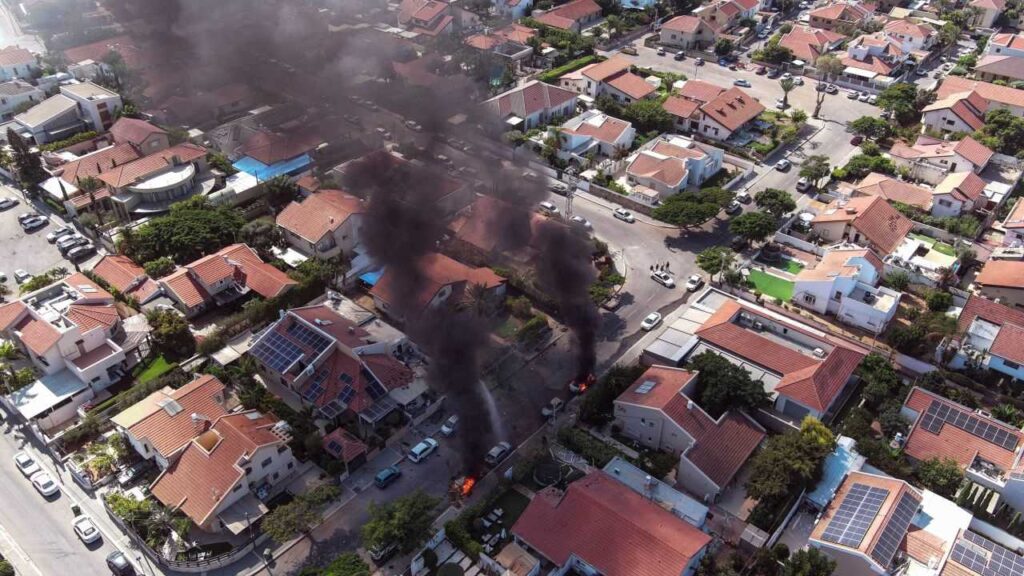
Following the Hamas attack, Western nations expressed condemnation of the assault and extended their support to Israel. Meanwhile, Arab states, including some that have previously recognized Israel, called for calm. United States President Joe Biden spoke with Israeli Prime Minister Benjamin Netanyahu, strongly condemning the attack by Hamas terrorists from Gaza and assuring Israel of Washington’s unwavering support.
President Biden stated, “I made clear to Prime Minister Netanyahu that we stand ready to offer all appropriate means of support to the government and people of Israel.” Saudi Arabia, currently engaged in talks with the United States regarding potential normalization of relations with Israel, closely monitored the situation and urged an immediate halt to the escalation in a statement by the Saudi foreign ministry.
On the other hand, Israel’s adversaries expressed approval of the attack. Major General Rahim Safavi, an adviser to Iran’s Supreme Leader Ayatollah Ali Khamenei, conveyed congratulations to Palestinian fighters and pledged support until the liberation of Palestine and Jerusalem. Hezbollah also lauded the assaults and announced its contact with Palestinian militant groups both within and outside the region.
What happens next?
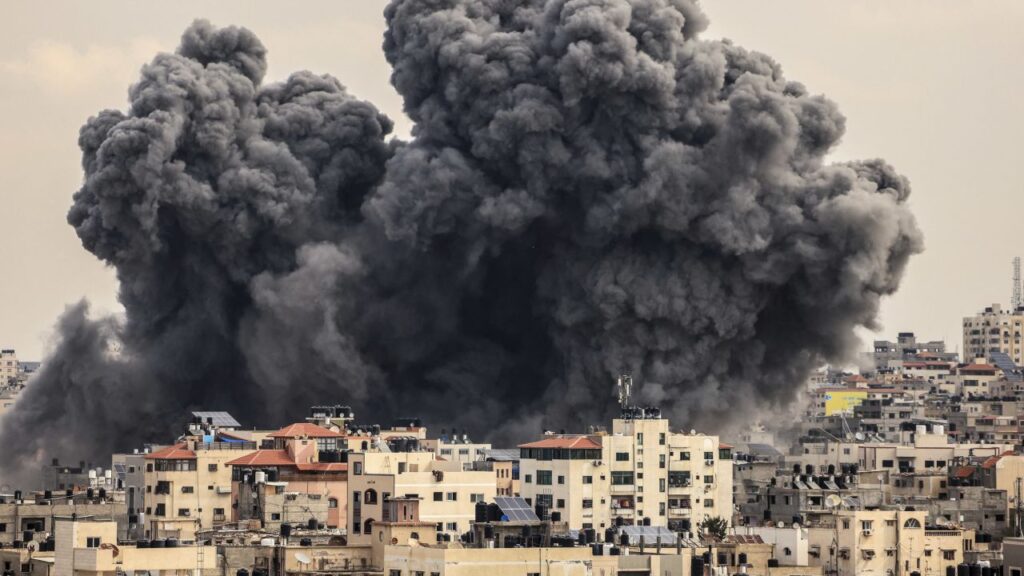
The Israeli Defense Forces (IDF) are currently intensifying their efforts to gain control of the Gaza Strip. Brigadier General Hidai Zilberman stated during a briefing on Sunday that their primary focus is on stabilizing control over Gaza. He emphasized that they have set targets for the next 12 hours, which include asserting control over the entire Gaza enclave and neutralizing all terrorists within their territory. Additionally, the IDF is planning to evacuate specific communities in Gaza.
Israel’s Minister of Defense, Yoav Gallant, has expanded the declaration of a “special security situation” to encompass the entire territory of Israel. This designation allows the IDF to issue security instructions to civilians and close public sites when deemed necessary for security reasons. Previously, a “special security situation” had been declared within an 80-kilometer (48-mile) radius of the Gaza Strip.
Brigadier General Zilberman mentioned that the IDF intends to present several potential courses of action to the Israeli cabinet, which is convening on Sunday. He anticipates that the government will make a decision either on Sunday or Monday regarding their next steps. Meanwhile, senior Hamas member Saleh al-Arouri conveyed to Al Jazeera Arabic on Saturday that Hamas is prepared for all possible scenarios, including the prospect of a full-scale war and heightened tensions on all fronts. He emphasized their readiness for the worst-case scenario, including the possibility of a ground invasion, which they believed would give them the opportunity to dictate the end of the conflict.
Write with us✍?
TeamUgtWorld warmly welcomes everyone! If you have something on your mind that you’d like to write about, we invite you to publish your content on our platform @Ugtworld. To learn more, please click on the link provided below.


